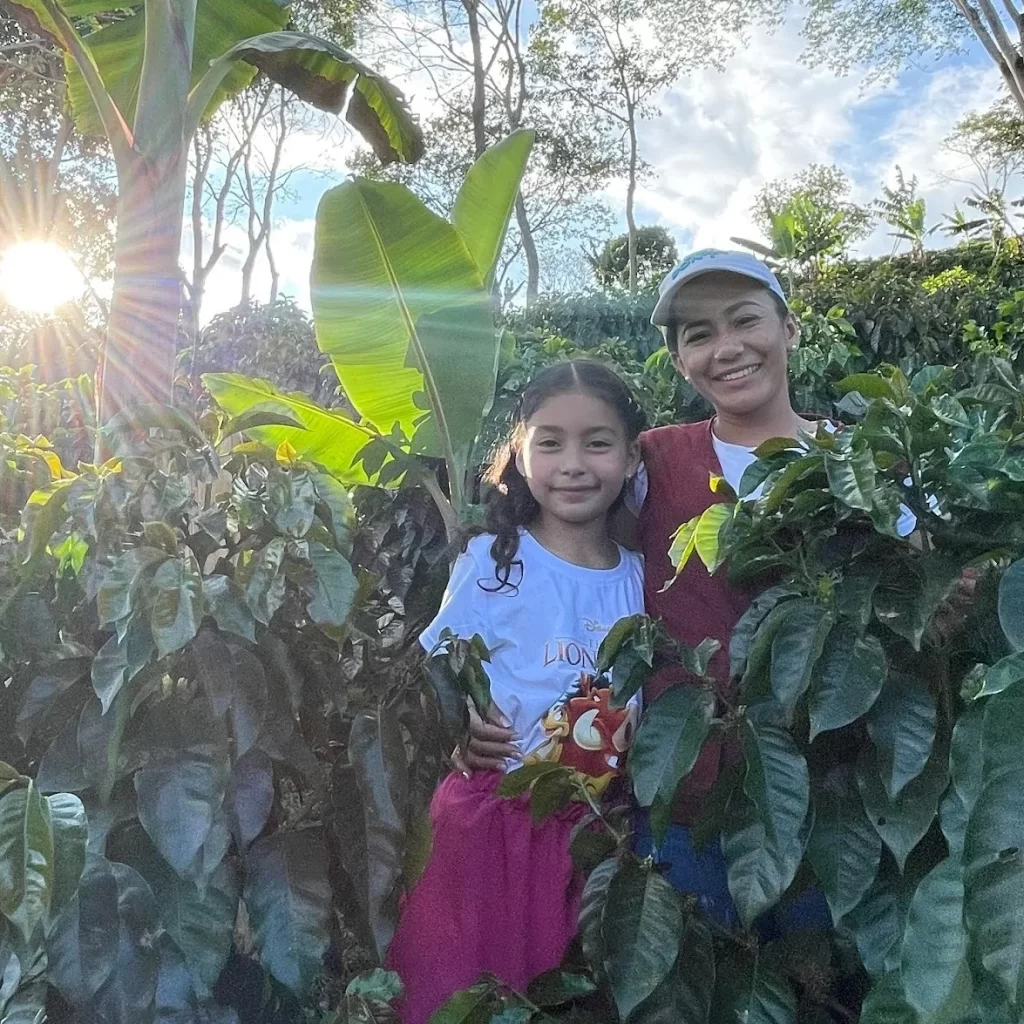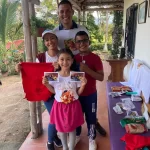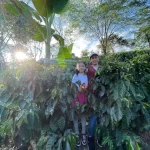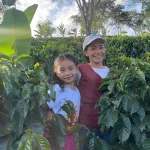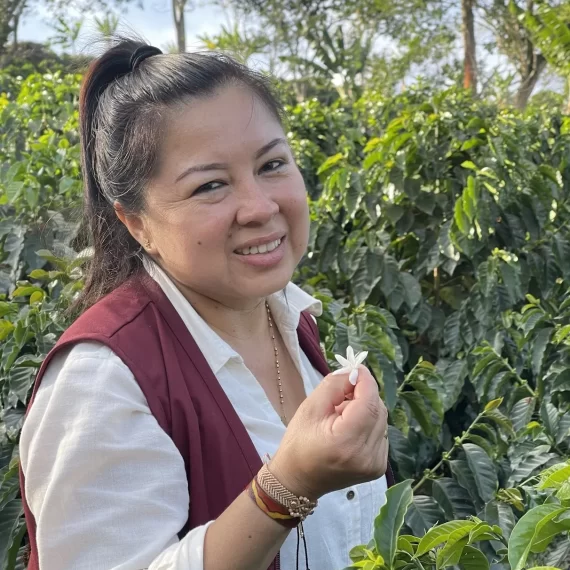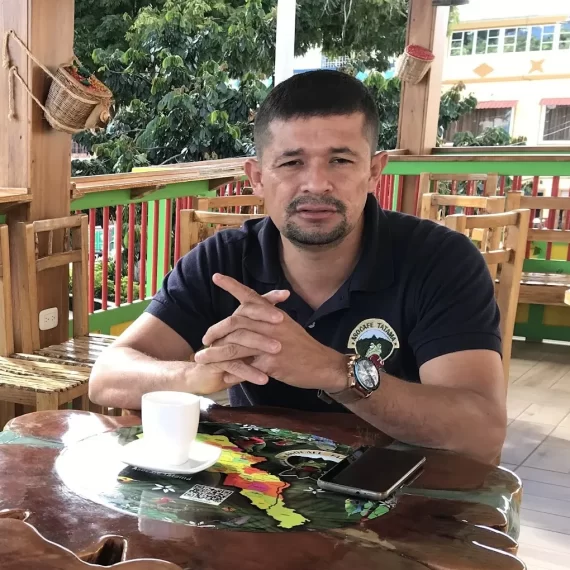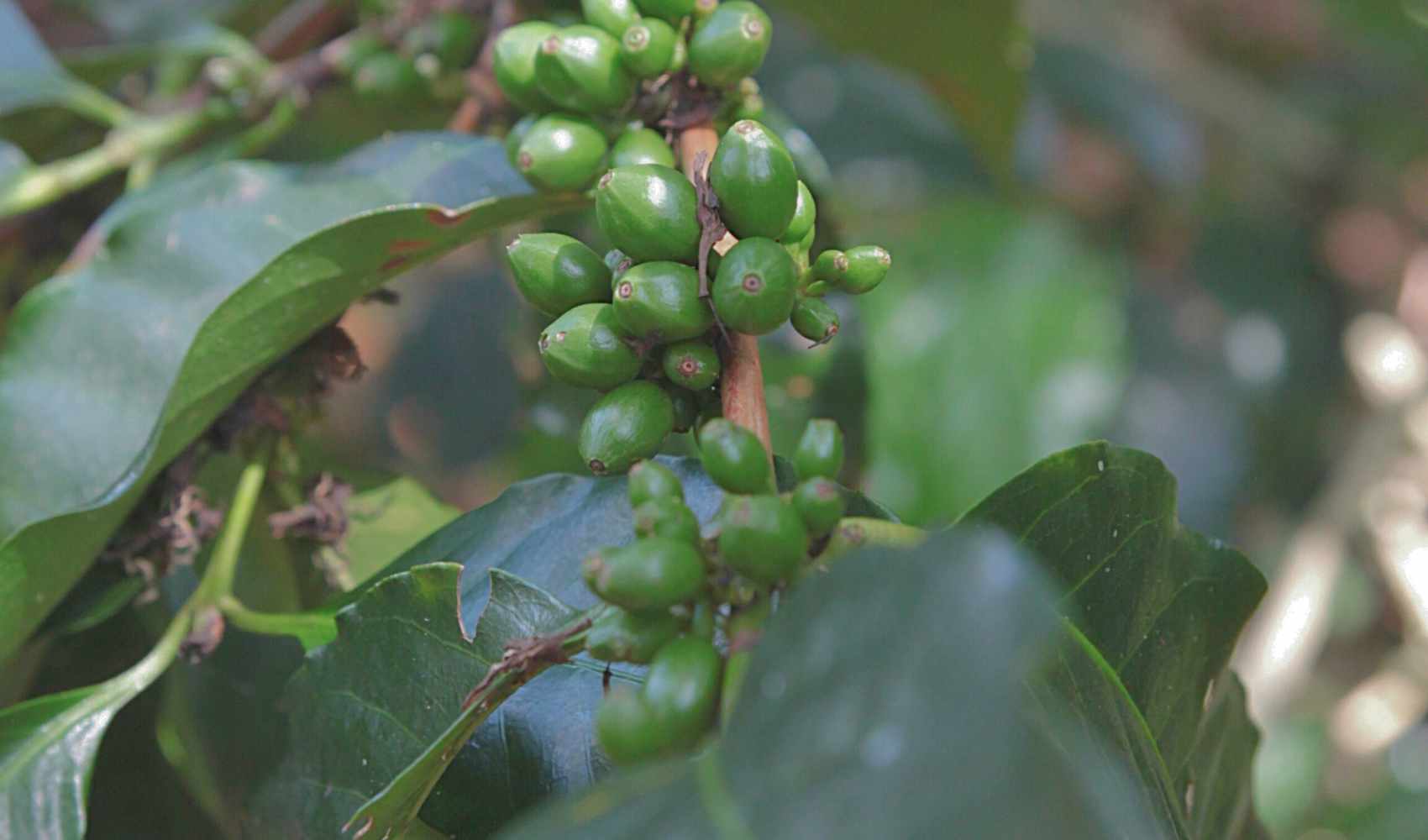
Lucelly Aviles Trejos
Luccelly is a passionate coffee farmer who began her journey in coffee after moving to the Huila region in 2014. Originally from Antioquia, where coffee is not traditionally grown in her area, she had no prior experience with coffee farming. It was in Huila that she met her husband, a coffee farmer, who introduced her to the world of coffee. Together, they embarked on a journey to transform their lives through coffee, believing in its potential to create something unique, exotic, and of high quality.
In 2019, Lucelly and her husband purchased a coffee farm that was in poor condition. Through months of hard work, they learned how to restore the soil and bring the coffee trees back to productivity. Lucelly is passionate about teaching others that coffee is a treasure, one that holds immense value for farmers and the country as a whole. For her, coffee connects people to a world of pride, biodiversity, and flavors.
About the Farm
The Miraflores farm, located in Pitalito, Huila, was abandoned when Lucelly and her husband acquired it. The farm required significant restoration, and Lucelly took it upon herself to learn about soil health and coffee cultivation. She discovered that coffee plants, much like humans, need to be healthy to produce good fruit.
While her husband initially worked elsewhere to support the family and the farm, Lucelly began studying at SENA (National Learning Service) to improve her knowledge of coffee production. She started roasting small batches of coffee and selling them to neighbors to build recognition for their product. Over time, they developed their own coffee brand, Dolcecafé, and began participating in events, fairs, and business networking opportunities.
Through their efforts, they learned to market their coffee, set fair prices, and focus on specialty coffee production. Both Lucelly and her husband completed a cupping course at SENA, which helped them further refine their skills. Today, their coffee is recognized internationally, with clients even exporting it to Asia.
About the coffee
The Miraflores farm produces a variety of specialty coffees, including Geisha, Ají, Pink Bourbon, Sidra, Caturro, and Supremo. Lucelly and her family are committed to improving their processes and ensuring the highest quality in their coffee.
Their dream is to fully utilize everything their farm produces and to gain the recognition and fair prices they deserve for their hard work. Lucelly believes that coffee farming is not just a livelihood but a way to connect with the world and showcase the richness of Colombian coffee.
Variety: Geisha
Process: honey
Floating (removal of dirt and light grains) is carried out after the ripe fruit has been picked. The coffee is then fermented aerobically in whole cherries (oxidation, for 24 hours) and then anaerobically in closed barrels for a further 24 hours. The coffee is then de-pulped and fermented again in closed containers for a further 72 hours. This fermentation phase is followed by partial washing (only part of the pulp is removed, the rest remains and the beans are dried with this part of the fermented pulp). The coffee is dried in traditional drying areas for 8 days.
Variety: Bourbon Ají
Process: honey
After the ripe fruit is picked, floating (removing the floating (removal of impurities and light grains).
This lot consists of two parts, each having undergone a different fermentation time:
– 50% of the lot: oxidation in the cherry for 24h, followed by anaerobic fermentation in closed containers (anaerobically) for 24h, de-pulping and fermentation in the pulp in closed containers (anaerobically) for 72h.
– 50% lot: oxidation in the cherry for 36h, followed by anaerobic fermentation in closed containers (anaerobically) for 36h, de-pulping and fermentation in the pulp in closed containers (anaerobically) for 96h.
This fermentation phase is followed by partial washing (only part of the pulp is removed, the rest remains and the beans are dried with this part of the fermented pulp). The coffee is dried in traditional drying areas for 8 days.
Variety: Pink Bourbon
Process: honey
Floating (removal of dirt and light grains) is carried out after the ripe fruit has been picked. The coffee is then fermented aerobically in whole cherries (oxidation, for 24 hours) and then anaerobically in closed barrels for a further 24 hours. The coffee is then de-pulped and fermented again in closed containers for a further 72 hours. This fermentation phase is followed by partial washing (only part of the pulp is removed, the rest remains and the beans are dried with this part of the fermented pulp). The coffee is dried in traditional drying areas for 8 days.


